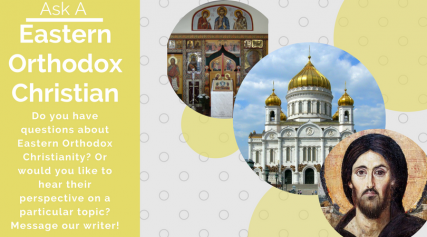What would you like to know about the Eastern Orthodox Christian faith? Submit your question.
By Nicholas Damascus
What are your thoughts on Roman Catholicism?
When Christ and the apostles established his church he declared the gates of hell would not prevail against it. This church existed for the first 1,000 years and was essentially known as the Orthodox Church. It consisted of five major historic Patriarchal centers referred to as the Pentarchy — four Eastern Sees, Jerusalem, Antioch, Alexandria, Constantinople, and the Western See of Rome.
Seven major ecumenical councils occurred during the first thousand years and to this day these councils are still considered valid by the Eastern Orthodox Church and the Roman Catholic Church. They were held primarily to maintain the true faith and to root out heresies that challenged and plagued the ancient church.
Rome was very much a part of the original root of the ancient Christian Church established by Christ and the apostles and was the leading center of Christianity for the first couple of centuries. Then in 325 AD, Emperor Constantine moved the center of Christianity to his new city of Constantinople (Istanbul, Turkey), and from this point forward, the See of Constantinople (the New Rome) assumed the “first among equals” in the leadership of the whole of Christendom.
However In 1054, Rome, in an attempt to reaffirm itself as the leader of Christendom, Rome excommunicated the Eastern part of the church, the Sees of Constantinople, Jerusalem, Antioch, and Alexandria. This attempt was unsuccessful when the Eastern part of Christendom excommunicated Rome, creating what we recognize as the Great Schism of 1054 AD. The See of Rome and its western territory now become what is known today as the Roman Catholic Church in the year of 1054 AD.
Now the Eastern part of the original Church that Christ and the Apostles established become known as the Eastern Orthodox Church and continued maintaining the original teachings and doctrines. The Eastern Orthodox Church did not add too, subtract from, or alter any of these teachings or beliefs of the original faith to this day.
However in the West, the newly formed Roman Catholic Church began adding to the original Christian faith in doctrine and beliefs. These changes would eventually give rise to the objection of many and causing a schism within the Roman Catholic Church known as the Protestant Reformation.
The following are changes of doctrines and decrees in the Roman Catholic Church that were added to the original faith. There are other theological differences between the Roman Catholic Church and the original Orthodox ancient Church; however, for now, I will list some of the main issues that were added:
- The Filioque
- Indulgences
- Institution of Celibacy for Priests
- Purgatory
- The Papacy
- The Immaculate Conception
- Original Sin
- In Persona Christi
- Church governing structure
- Transubstantiation
- Annulment
If anyone should want a side by side comparison of these doctrines I can do so in a part two of this topic. None of the above statements concerning our brothers in Christ are meant to be derogatory, merely statements of fact.
In 1521 AD, the official beginning of the Protestant Reformation or schism officially started with the declaration of the Edict of Worms, condemning the father of Protestantism Martin Luther, his ideas, and anyone that would follow him.
If one were to follow the Christian timeline, you would find that in western Christianity, there are thousands of churches that were formed as a result of the Protestant Reformation. As of 2012, 43,000 Christian denominations exist, according to the Center for the Study of Global Christianity at Gordon-Conwell Theological Seminary. See here for more.











Google
Check beneath, are some totally unrelated web sites to ours, however, they’re most trustworthy sources that we use.
… [Trackback]
[…] Read More here: favs.news/ask-an-eastern-orthodox-christian-roman-catholicism/ […]